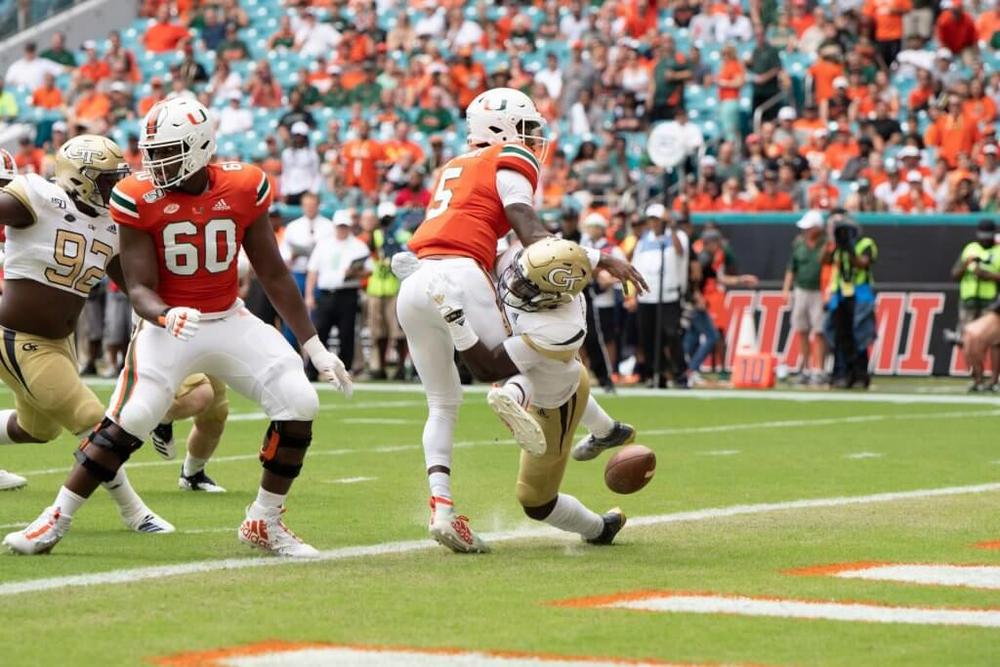
Caption
Georgia Tech and University of Miami athletes play football at Miami. Georgia is among a number of states that have moved forward with laws granting college athletes the rights to their own “name, image and likeness,” arguing that it's a matter of fairness for student athletes.
Credit: Photo courtesy Georgia Tech

